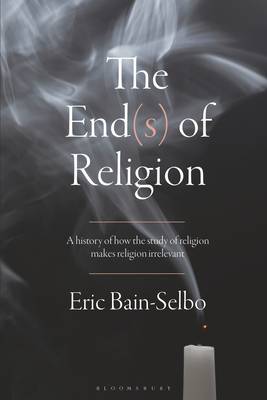
- Retrait gratuit dans votre magasin Club
- 7.000.000 titres dans notre catalogue
- Payer en toute sécurité
- Toujours un magasin près de chez vous
- Retrait gratuit dans votre magasin Club
- 7.000.000 titres dans notre catalogue
- Payer en toute sécurité
- Toujours un magasin près de chez vous
The End(s) of Religion
A History of How the Study of Religion Makes Religion Irrelevant
Eric Bain-SelboDescription
Eric Bain-Selbo argues that the study of religion-from philosophers to psychologists, and historians of religion to sociologists-has separated out the "ends" or goals of religion and thus created the conditions by which institutional religion is increasingly irrelevant in contemporary Western culture.
There is ample evidence that institutional religion is in trouble, and little evidence that it will strengthen in the future, giving some reason to believe that we are in the process of seeing the end of religion. At the same time, various cultural practices have met in the past and continue to meet today certain fundamental human needs-needs that we might identify as religious that now are being fulfilled through what Bain-Selbo calls the "religion of culture."
The End(s) of Religion traces the way that the very study of religion has led to institutional religion being viewed as just one human institution that can address our particular "religious" needs rather than the sole institution to do so. In turn, ultimately we can begin to see how other institutions or forms of culture can function to serve these same needs or "ends."
Spécifications
Parties prenantes
- Auteur(s) :
- Editeur:
Contenu
- Nombre de pages :
- 288
- Langue:
- Anglais
Caractéristiques
- EAN:
- 9781350287761
- Date de parution :
- 24-08-23
- Format:
- Livre broché
- Format numérique:
- Trade paperback (VS)
- Dimensions :
- 156 mm x 234 mm
- Poids :
- 408 g







